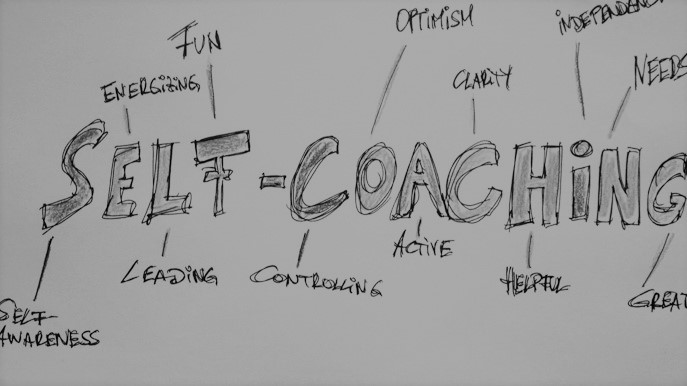
Stories Talk | Presentation Skills and Effective Storytelling
Stories Talk | Presentation Skills and Effective Storytelling
#coaching #career #personaldevelopment #soft skills
By Mia Kollia
Translated by Alexandros Theodoropoulos
Coaching helps us to better comprehend ourselves and to discover potential possible choices and finally to evolve. Since not all of us have the ability to hire a "coach", it’s good and useful to learn how to offer a coach to ourselves.
It is important to learn the necessary skills beforehand so that we can guide ourselves in our careers. The skills that we can gain from self-coaching accelerate self-knowledge and lead to our self-sufficiency, helping us to navigate our career with more confidence and control.
Everyone can learn to coach themselves, regardless of experience or specialisation. It takes practice and we can sometimes feel uncomfortable, but hard work is worth it. When we manage to develop our own reasoning and make the right decisions in response to the challenges we experience in our career, we increase our resilience and reduce our dependence on other people.
By starting the self-coaching process we develop different skills:
Self-knowledge
To achieve high levels of self-awareness, we must see ourselves clearly and understand how others affect us. Self-knowledge doesn’t come about by chance - we work hard to make it happen. Here are two ways to improve self-awareness that can be incorporated into our working days:
The intention - impact difference
Let's think about three important moments in our week during which we have a clear picture of how we would like to look. For each scenario, we summarise our intention using only one word. For example, we may want to be "trustworthy" in a presentation or "good partners" in a group meeting. After each situation, we ask at least one participant to describe our impact on them, from their own point of view, in one word. This question might be something like "What word would you use to describe my approach / attitude to today's meeting?"
Comparing our intentions with the feedback we get on our impact will help us understand if there is alignment and self-awareness or if there is a gap, which will be an opportunity for improvement.

Coaching questions about ourselves
Asking ourselves insightful guidance questions will unlock our thinking and support us in identifying actions that will help us make successful progress. We can evaluate the quality of our questions using the following three categories:
Open-ended questions
These questions should start with who, what, why, where, when or how. We don’t ask questions that can be answered with a “yes” or “no”. Instead of asking a closed question like "Do I like my job?" it’s better to ask the question in an open way: "What do I actually like about my job?" In this way, we will find out that we are able to get more information and feedback about ourselves.
Basic questions:
1. What gives me the most energy at work?
2. When do I allow my self-confidence (or the lack of it) to hold me back?
3. Who could offer me a different perspective on challenging my career?
4. In a year, what do I want to be or to have that I don’t have today?
Self-criticism
Coaching questions always focus on ourselves. Instead of asking: "How has this person progressed faster than me?", the question should be: "How could I accelerate my development?" If we find ourselves blaming other people or external factors, it’s a sign that we need to refocus on what we can control. By identifying our own actions, we will be more committed to implementing the changes we want to make to ourselves.
We listen to ourselves
In order to guide ourselves towards success and development, we must become adept at listening to the thoughts and beliefs that guide our actions. When we are distracted, we don’t achieve the depth of reflection that will help us think or act differently. There are some techniques we can practice to learn to listen.
We reduce attention deficit and distraction
We all experience distraction. Understanding when and where this happens is an important step when applying self-coaching. Finding ways to reduce our distraction will have a positive effect on our efforts.
For example, if technology is our weakness, we can avoid distraction by leaving our devices in another room when working or when we try to concentrate on something. If other people have a problem with our concentration, we can choose to work outdoors or at the beginning of the day before the demands of other jobs start to distract us.
We become our best friend
Part of guiding ourselves is knowing who to listen to in our minds. We all have an internal coach and an internal judge, and there will be times that our internal judge will start to take control. This can end up with thoughts like: "I'm not smart enough to figure it out" or "I can't do it, so I have to give it up now".
To silence our inner judge, it’s good to try to talk to ourselves as our best friend would. Imagine talking to our best friend and note down three supportive suggestions that he/she would provide us with. These may be a reminder of past successes or a reminder of how we have overcome adversity in the past, or we may recall conversations about how much others admire our determination or bravery.
We may often feel insecure about our careers, but self-coaching is a skill we can all develop. Commitment to developing self-training and self-coaching skills can help us overcome obstacles and create more opportunities for our development. If there is time to develop just one skill in 2022, self-coaching can be that skill; and is worth it.